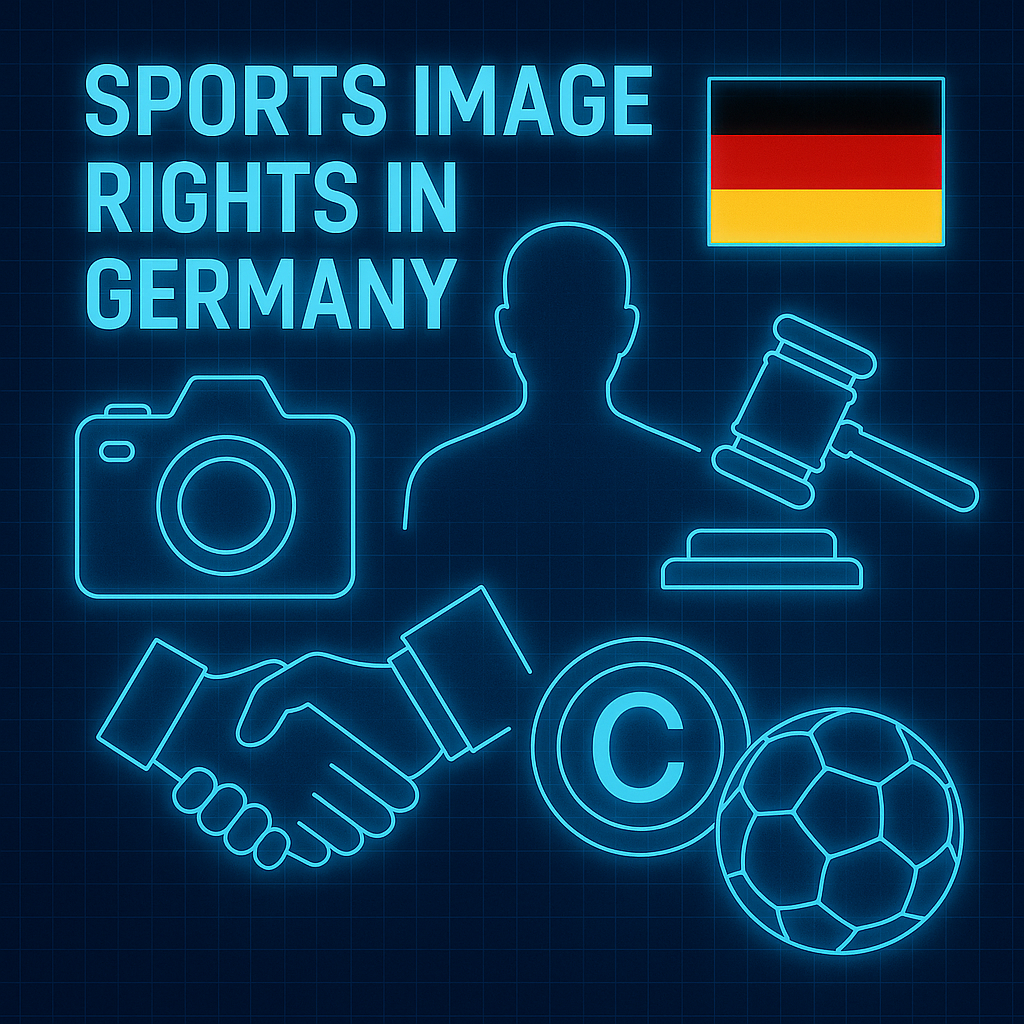SPORTS IMAGE RIGHTS IN GERMANY

In Germany, sports image rights are protected under the right to one’s own image, as a component of personality rights, under Section 22 of the German Art Copyright Act (UrhG); the general right of privacy under Articles 1 and 2 of the German Constitution (Grundgesetz); and the Federal Data Protection Act (BDSG).
This means that sportspersons, in general, have the right to control how their images and likenesses are used, especially for commercial purposes.
However, there are some exceptions, which include freedom of expression and the reporting by the media on public events, such as sports matches, provided that the images are not used for commercial purposes unrelated to those events. Also, if the use of sportspersons’ images is intended to cause them harm or damage their reputations, that is not permitted either.
Also, the commercial exploitation of sports persons’ image rights within sports events requires their consent.
Such consent must be clear and express, as the case involving the well-known German national goalkeeper, Oliver Kahn, demonstrated. In that case, Kahn successfully sued Electronic Arts (EA), in the Hamburg Court of Appeal, for using his name and image in a video game and its associated marketing campaign without his consent. The video game “FIFA Soccer Championship 2002” featured numerous real-life players and teams, including Khan.
The Court determined that the primary motivation of EA was to create and sell a game for profit, and the use of Kahn’s likeness was solely for their commercial purposes.
The Court also decided that the game did not fulfill any public interest in providing information, such as details of the tournament or the host country, and the use of Kahn’s image was solely for the commercial benefit of EA.
The Court, therefore, awarded Kahn damages and also issued an injunction preventing the game being sold in Germany, thereby forcing EA to withdraw it from the market.
Sports image rights should be formalised in separate image rights licence agreements, that is, separately from the sportspersons’ contracts of employment, and other tax considerations should be taken into account, when drafting and organising them, especially for management purposes and as far as non-resident sportspersons are concerned.
In any case, such agreements should be carefully drafted and the image rights, to be licensed, precisely defined. Such rights include sportspersons’ images, likenesses, names, nicknames and characteristic sporting gestures, such as Jonny Wilkinson’s distinctive cradle hands gesture before kicking penalties.
We advise on the commercialisation and exploitation of sports image rights in Germany, including disputes, and further information is available from the Head of our German Desk, Oliver Fischer, by emailing him at fischer@valloni.ch.